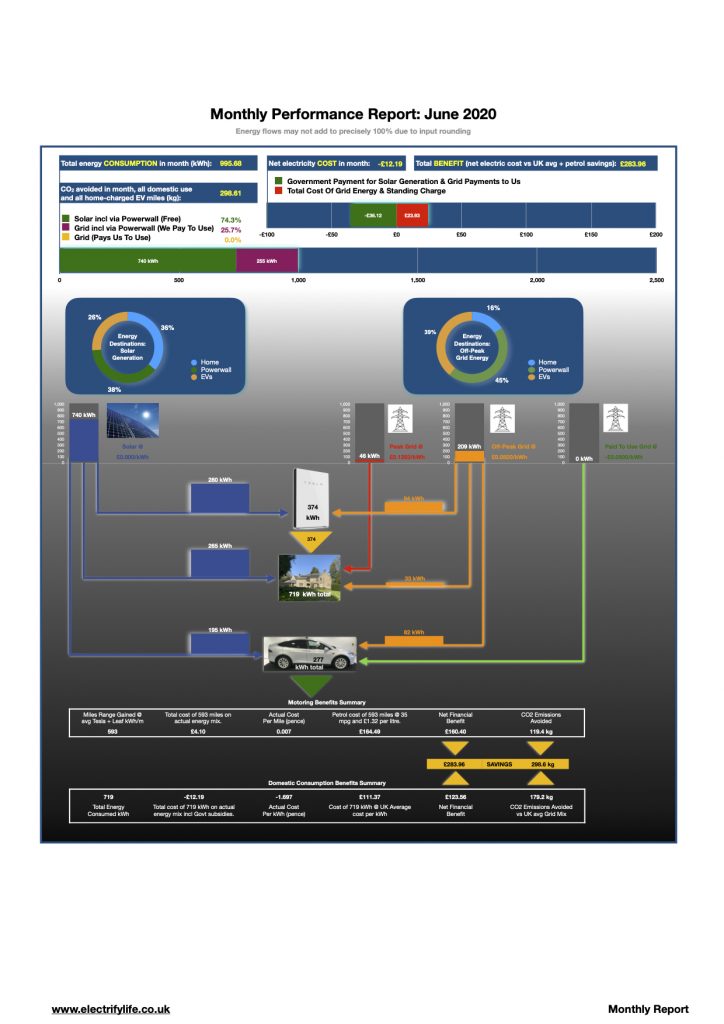Other than the ongoing mass death virus thingy and associated economic implosion, June 2020 was an exceptionally pleasant month in the UK. As anyone with solar panels will tell you, it was very, very sunny indeed towards the end of the month, although the MetOffice recorded only about 165 hours of bright sunshine in June in our region, compared to the positively Arabian 269 hours which had beaten down on us in May.
Whatever the Bracknell stats geeks say, we ended up with enough sunshine to produce another month with negative cost of energy. As the calcographic below shows, although we consumed nearly a megawatt of electricity for domestic use and charging EVs during this (still a bit lockdowny) month, we actually ended up £12.19 better off in net terms at the end of the period.
The £36.12 Government payment for 740 kWh of solar generation was more than the £23.93 cost of importing the meagre 225 kWh of grid electricity we did not generate ourselves in the month, which includes £7.50 of ‘standing charge’ fixed fee for grid connection at £0.25/day.
Our two EVs were charged roughly 70% with solar (195kW), plus 30% (82kWh) with zero carbon off-peak energy supplied at only 5p/kWh on the Octopus Go tariff overnight rate. Coronavirus ensured that June 2020 was still a very travel-restricted period, so we only covered 593 miles. However, even over this relatively small mileage, that still added up to fuel savings versus petrol/diesel ICE cars of £160.40. The electric ‘fuel’ for the EVs cost us just £4.10 in the month, which works out at only 0.7 pence per mile! It would have cost us £164.49 to travel the same distance in ICE cars, using our standard mpg calculations.
We also won big-time on our 719 kWh domestic consumption. 76% (545 kWh) was solar, including 374 kWh which was stored in the Powerwall stationery battery during the sunshine hours and used in the evenings. The remaining 24% (173 kWh) was zero carbon source grid electricity from Octopus. And over half of the grid imports were stored during the super-cheapo off-peak hours into the Powerwall and discharged at zero additional cost to us during the peak period.
Taking into account the solar generation payment we received from Government, our 719 kWh of domestic energy cost us minus 1.7 pence per kWh, making minus £12.19 net. If we had bought those kWh at UK ‘Big 6’ average rates, we would have paid £111.37. So that’s a net financial benefit of £123.56 for domestic energy consumption.
Putting domestic energy savings and motor fuel savings together, net financial benefit was £283.96 in the month of June. And the planet was 298.6 kg of CO2 emissions better off too.
Please click the image below for a downloadable PDF of the detailed monthly report. The impact of this month on financial payback of system costs is here.
